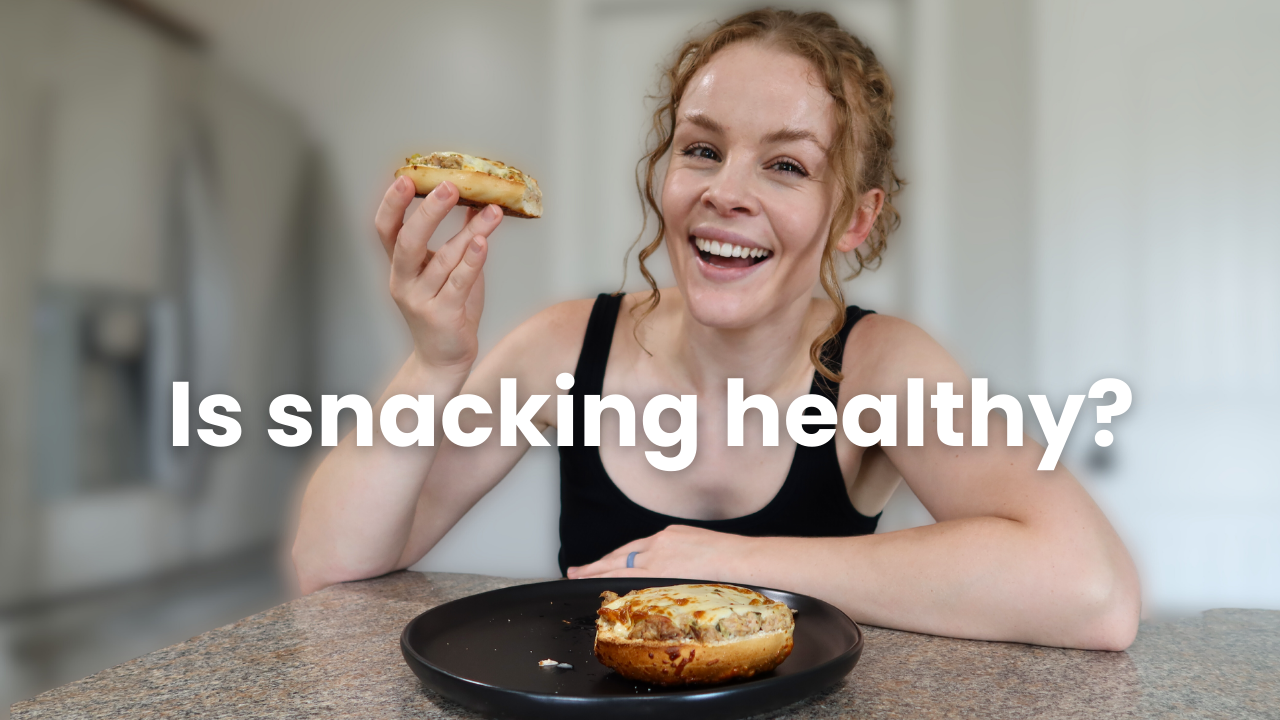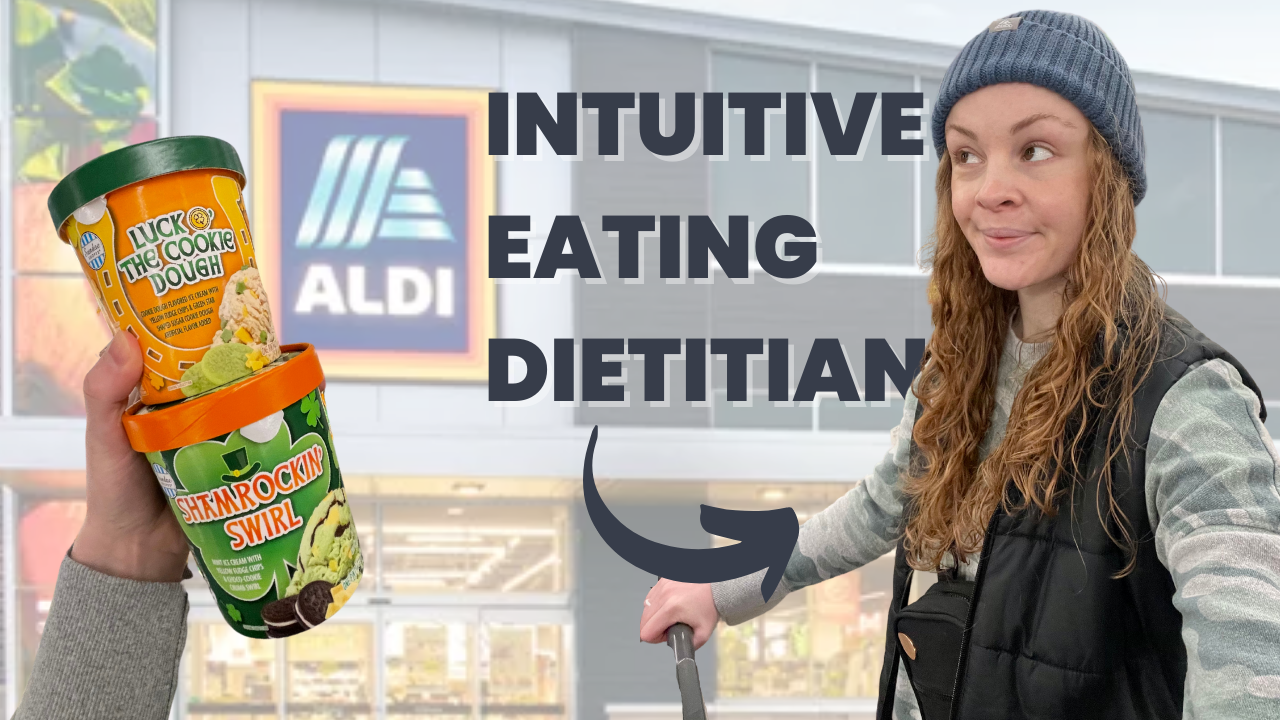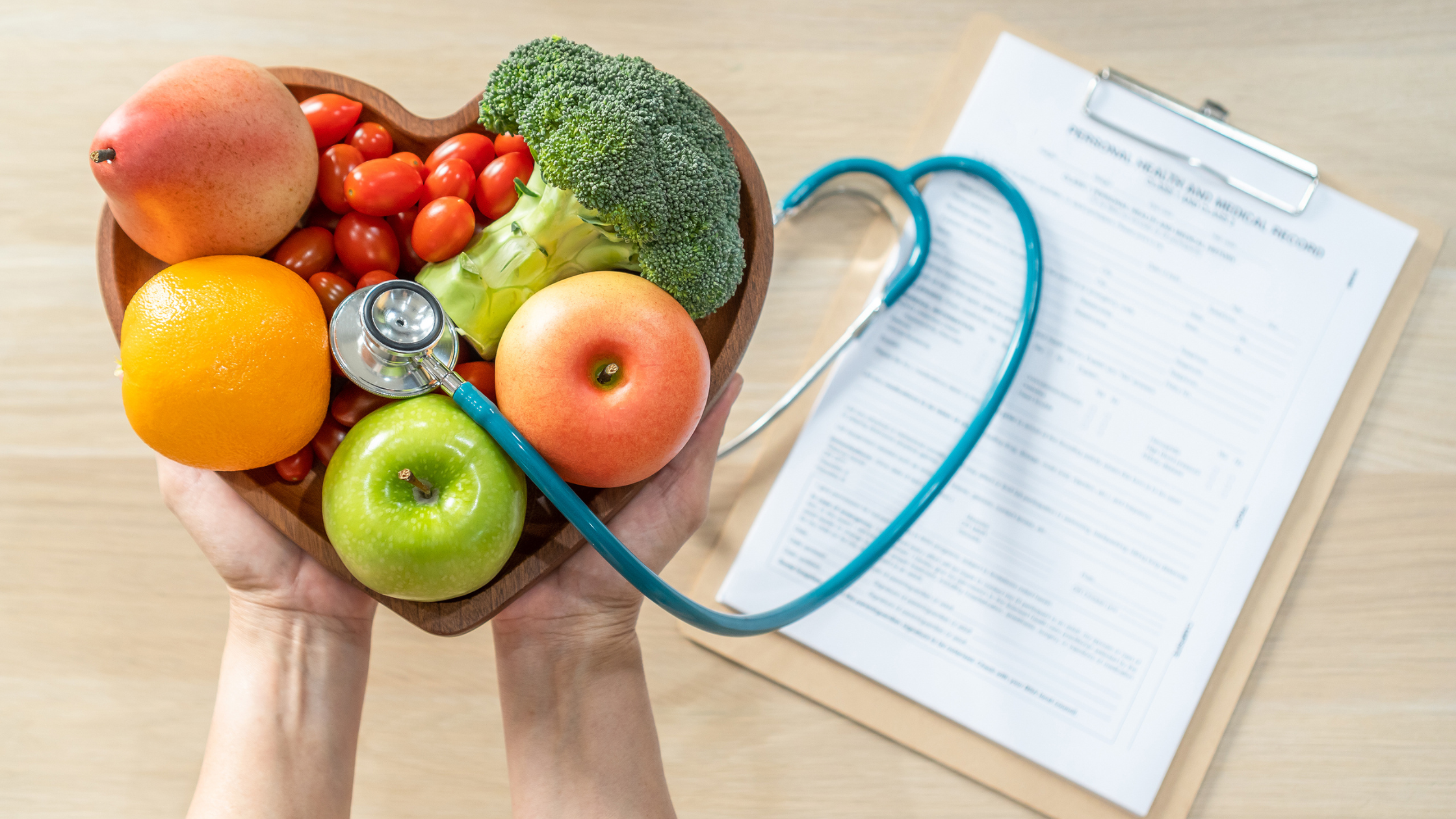How Much Protein Do You Actually Need?
With high-protein diets being very trendy, people are often curious how much protein is actually needed. As with most things in nutrition, the answer is not always simple. There are many factors that play into protein needs.
If you’re new here, hello and welcome! My name is Hannah and I am a non-diet dietitian and personal trainer here to help you improve your relationship with your food and exercise and finally find food freedom.
Table of contents:
What is protein?
Protein is a vital nutrient that is found in many foods. Protein is most well-known for helping your body to grow and repair muscles, and it also helps fight infection, keep body fluids in balance, and carry vitamins, minerals, and oxygen throughout the body.
Complete vs. incomplete protein
Protein is made up of amino acids, frequently referred to as the “building blocks” of protein. There are 20 amino acids in total. Nine of the amino acids are essential, meaning that they cannot be produced by the body and must be consumed through the diet. The other 11 amino acids are considered nonessential, which means that the body can produce them on their own and don’t necessarily need to be eaten.
Complete proteins contain all nine essential amino acids. By comparison, incomplete proteins contain some, but not all, of the essential amino acids. This does not mean that incomplete proteins are “less healthy” than complete proteins! By eating a varied diet, you will likely get all of the essential amino acids that your body needs.
Examples of complete proteins include:
Beef
Poultry
Fish
Pork
Eggs
Dairy
Whole sources of soy (tofu, edamame, miso, and tempeh)
Examples of incomplete proteins include:
Beans and lentils
Peas
Nuts and seeds
Whole grains
Vegetables
How much protein do you need?
There are various guidelines in place to estimate protein needs. Protein requirements are individualized and depend on activity level, age, sex assigned at birth, health conditions, etc.
One way to estimate your protein needs is by the amount of calories that are consumed. It is recommended that 10-35% of calories come from protein. This is quite a large range, so other deciding factors would be considered to determine the right protein range for you.
Another way to calculate protein requirements is by using the recommended dietary allowance (RDA). The RDA is the level of intake of a nutrient to meet the needs of a healthy person. The RDA for protein is 0.8 grams per kilogram of bodyweight. For a 150 pound person, this would look like about 55 grams of protein per day.
Many experts suggest eating above the RDA for protein, as the RDA is a minimum recommendation to meet you body’s needs. Aiming for closer to 1.0 to 1.2 grams of protein per kilogram of bodyweight may be beneficial.
For athletes and highly active people looking to build muscle, it may be recommended to consume upwards of 1.8 grams of protein per kilogram of bodyweight, spread out throughout the day to optimize muscle protein synthesis.
Rather than becoming too caught up in exactly how many grams of protein are needed per day (as this can be a slippery slope to disordered eating for some), I suggest trying to incorporate some protein at each meal and snack to spread intake throughout the day. Now, this is not a food rule! It is totally okay to enjoy a meal or snack without protein.
If meeting a daily protein goal seems daunting, I suggest breaking it down into smaller meals and snacks. Perhaps aim for about 20-30 grams of protein per meal and about 10-20 grams at snack time. Again, this is not a rule, but rather a potential form of gentle nutrition. Eating protein at each meal and snack will help to stabilize blood sugars, keep you fuller for longer, and help you meet your total daily protein needs without stressing out about it.
Benefits of protein
There are many benefits of meeting your daily protein needs, including:
Building strong muscles and bones
Reducing muscle loss
Managing appetite and hunger levels
Reducing persistent cravings
Repairing tissue after injury or surgery
Signs you are not eating enough protein
How can you tell if you are eating enough protein without tracking your intake? Here are a few signs that you may not be eating enough of this nutrient:
Brittle hair and nails
Feeling hungrier than usual
Muscle loss
Stress fractures
Getting sick often
Frequent fatigue
Is it possible to eat too much protein?
While it is possible to overconsume anything, even water, most people are not at risk of eating too much protein. Protein deficiency is a rarity in the United States. If you are eating a variety of foods, you likely don’t need to worry about excess protein intake.
That said, more protein is not always better. High protein diets are currently very trendy and some individuals (especially those in the fitness industry) recommend astronomical amounts of protein per day (I’ve seen people suggest upwards of 2 grams of protein per pound of bodyweight). This is unnecessary and can easily result in inadequate intake of the other macronutrients - carbohydrates and fats. While protein is important, all other nutrients serve essential functions as well.
Note: a lower protein diet is recommended for certain populations, such as those with kidney disease who are not on dialysis.
Should you take a protein supplement?
Before reaching for a protein supplement, try to incorporate protein from food sources. Protein is found is many different types of foods and it can be added to dishes that you are already consuming. And as I’ve mentioned, more is not necessarily better.
That said, protein supplements may be helpful for those who struggle to meet their protein needs from food alone. As with all supplements, I recommend looking for ones that are third-party tested to assure safety of ingredients and label accuracy. Here are some of my favorite protein powders and shakes.
Dietitian’s tips to increase protein intake
Ready to start incorporating more protein in your diet? Here are a few dietitian-approved ways to add this nutrient to your plate.
Include Greek yogurt or cottage cheese for a snack or part of a meal.
Add and extra egg to a meal.
Eat protein at all snacks, including cheese, nut butters, yogurt, and milk.
Add beans and peas to pasta, soups, salads, and casseroles.
Add protein powder to smoothies, oatmeal, pancake batter, and coffee.
Add cottage cheese to scrambled eggs.
Add cheese to sandwiches, soups, casseroles, vegetable dishes, and pasta.
Mix ranch dressing powder with plain Greek yogurt for a vegetable dip.
Add extra egg whites to French toast batter, pancake batter, omelets, and scrambled eggs.
Spread peanut butter or another nut butter on toast, muffins, pancakes, fruit slices, and crackers.
Sprinkle nuts and seeds on toast, fruit, cereal, yogurt, and salads.
Bottom line
There are many benefits to eating a protein-rich diet and protein is a vital nutrient that we all need.
More protein is not always better, and meeting your protein goals should not be causing you stress. Incorporate a variety of protein sources and try to include protein at each meal and snack to help you reach your unique daily protein needs.
There are so many foods that offer protein and lots of ways that you can incorporate more to your diet. What are you favorite ways to get in your protein? Leave a comment below!
Follow along
See these tips in action on YouTube
Want more help on your diet ditching journey?
Join my signature membership to become part of a community of ex-dieters working towards food freedom and making peace with food so they no longer need to cut out their favorite foods.

































































